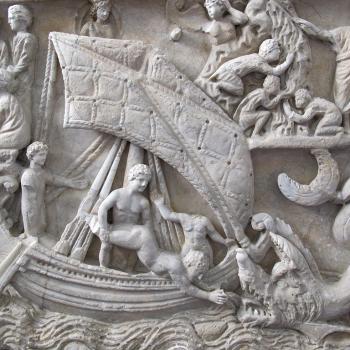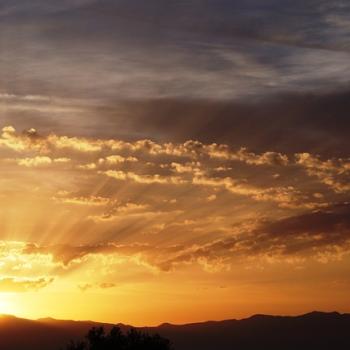Editors' Note: This article is part of a Public Square conversation on the Security State. Read other perspectives here.
I place the word "debate" in quotation marks because we have no real debate right now in regard to aggressive and intrusive government behavior undertaken in the name of national security. Civil libertarians have been pushed way over to the margins on the question of NSA surveillance and ultra-secret "national security letters" (shhhh!) that blatantly violate constitutional privacy guarantees; peacemakers have been pushed way over to the margins in respect to special operations and targeted assassinations in dozens of countries and indefinite detention without charge or trial at Guantanamo and other sites.
In the wake of the 9/11 attacks, most Americans simply shrugged their shoulders and said, "Do what you have to do to keep us safe." Never mind Benjamin Franklin's warning that those who surrender freedom for security "will not have, nor do they deserve, either."
In theory, our religious communities should have a lot to say about the danger of being overcome by fear and of allowing ourselves to be obsessed with the fruitless search for absolute security. In practice, almost all American preachers have steered clear of this topic out of their own well-grounded fear of running afoul of anxiety-ridden congregants.
When U.S. faith leaders won't even preach about the danger of surrendering to fear, it is not hard to surmise how little they have to say about the still greater danger of drifting along with our country's imperial pretensions.
I maintain that this complacency regarding empire is the greater danger because of God's implacable hostility to the royal habit of attempting to stage-manage reality. As Walter Brueggemann observes, the manipulations of the powerful present a far worse problem than what arises when an ordinary individual bears false witness against a neighbor. In the "royal engine room of public distortion," says Brueggemann,
recognized voices of established reality deliberately misrepresent the state of the economy and foreign policy. Society has broken down and is not working, and they legitimate the dysfunction and give false assurance. The voices of accepted legitimacy present a fake reality, with failed fact disguised as workable fantasy.
The "workable fantasy" imposed upon us by the national security state is the notion that the United States has an absolute right to ignore its own Constitution, deceive its own special intelligence courts, interfere blatantly in the internal affairs of foreign countries, eavesdrop on the personal calls of even its closest allies (e.g., the German chancellor), and kill hundreds of people by remotely-controlled drone-launched weapons because (after all) we are a specially blessed people—a people who remain perpetually innocent and divinely protected no matter how much actual blood is dripping from our actual hands.
Do our faith traditions have anything distinctive to say in the face of the imperial narrative? One certainly hopes so! For Christians, our Easter faith necessarily de-legitimates and dethrones all false sovereignties; it dismisses Pharaoh, Caesar, and all other imperial power. Yes, all imperial power—very much including the presumed power of the so-called "indispensable nation" that the United States still fancies itself to be.
As Brueggemann argues, the willingness and capacity of the church to assert God's life-giving sovereignty assumes critical importance for us at a time when our culture and our government embrace the power of death in so many destructive ways. It may be quite natural for our self-respect to shrivel in the face of the Golem-like might of the vast security apparatus we have permitted to intimidate us in recent years. But we need to take courage and remember that God alone is our refuge and our strength.
As for whether people like Edward Snowden are traitors or patriots: Is this even a question? Have we entirely forgotten our own history??
What did John Kennedy say? "A nation that is afraid to let its people judge truth and falsehood in an open market is nation that is afraid of its people." And Thomas Jefferson? "All tyranny needs to gain a foothold is for people of good conscience to remain silent." Of course our royal masters will hate the likes of Edward Snowden: he holds up such an unflattering mirror to their own wretched betrayals of hard-won American rights and liberties.
My colleague Jim Rigby discusses the FBI's secret campaign against Martin Luther King, Jr. We never would have learned about the massive and illegal COINTELPRO program being run by J. Edgar Hoover had not some brave citizen patriots broken into the FBI's field office in Media, Pennsylvania, to remove many boxes of files in March of 1971. Today we honor as heroes the folks who undertook to do this daring deed. How dare we then excoriate those who expose the illegal and abusive actions of today's power elite? National Intelligence Director James Clapper lied under oath when he told a congressional hearing that his agency doesn't collect data on U.S. citizens. If anyone deserves censure and appropriate punishment, that miscreant would be Clapper and not Snowden.
1/28/2014 5:00:00 AM




